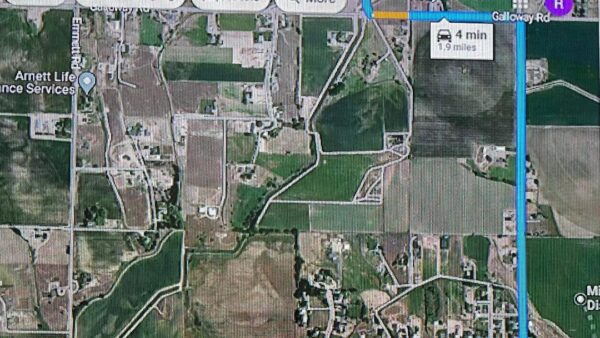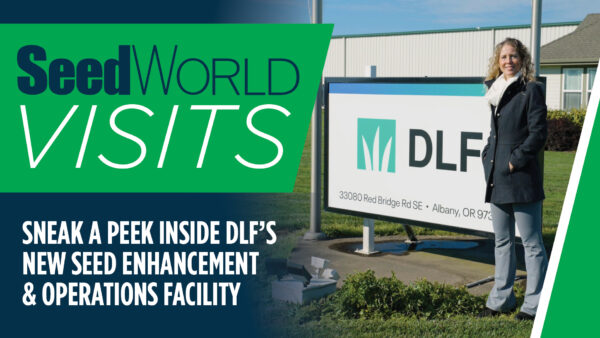In an era where people primarily communicate by email and text, trust can be harder to come by.
What’s the most important thing needed to bring comfort to your employees? Stability, salary, a safe workspace? Wouldn’t it be easier to just say “trust?”
“Trust” means different things to everyone. One thing’s for certain: without trust, it’s hard to provide a successful business environment.
“One breach of trust, and what happens?” asked David Horsager, a best-selling author and CEO of the Trust Edge Leadership Institute. “You never ask again. A lack of trust is the biggest expense you can have. Everything of value is built on trust.”
An example Horsager presented to attendees at the Independent Professional Seed Association (IPSA) annual conference was the idea of credit score. Credit score is built based on trust made with a credit card company. It’s calculated on previous ability to pay on time and whether or not a bill was paid in full. Miss one payment and the trust is broken, lowering the score.
The same idea is instilled in the seed industry: farmers trust businesses to provide them with quality seed that meets their needs. However, if the seed doesn’t perform in the promised way, growers will take their business elsewhere in an attempt to find a company that meets their expectations.
“Trust is a confident belief in a person, product or organization,” said Horsager. “When I can confidentially believe in you, everything changes.”
But how, as a seed company, do you build that trust?
Employees in all sectors want to trust their leadership. Horsager, who invented the Enterprise Trust Index and conducts a yearly Trust Outlook, asserted that research shows employees would be willing to work longer hours, be more loyal or even take a pay cut if they could just trust their leadership.
“Trust is not stated, trust is earned,” Horsager said. He narrowed trust down to eight pillars: clarity, compassion, character, competency, commitment, connection, contribution and consistency.
The Pillars of Trust
Clarity. The first pillar is clarity. Horsager wrote in his book The Trust Edge: How Top Leaders Gain Faster Results, Deeper Relationships, and a Stronger Bottom Line that people trust the clear and mistrust the ambiguous. “Around the world, people think they’re clear when they aren’t,” said Horsager.
He wrote that it’s important to be clear about your mission statement, purpose, expectations and daily activities. A clear mission can unify and inspire the entire operation.
Compassion. “People trust those who have intent beyond themselves,” Horsager said. “That’s why the most trusted person in the world is not a nurse, firefighter, farmer or the pope. The most trusted person globally is actually Mom.”
Horsager’s book fleshed out this concept, “Never underestimate the power of sincerely caring,” he wrote. “It is the reason we trust our mothers over some salespeople. We are skeptical if the salesperson really has our best interest in mind.”
It might even be best to look at the cliché golden rule: “Do unto others as you would have them do unto you.” Horsager noted that this isn’t just an old, used up saying, but instead it is a bottom-line truth.
Character. It’s difficult to determine someone’s character, but Horsager shared that, “the leaders who have this pillar tend to do what’s right over what’s easy.” Character is a mixture of integrity (being the same from beliefs to words to actions) and moral character (taking the high road in every interaction).
Compentency. “You can have character, but if you don’t have the competency for it, I don’t trust you.” To be competent in something, Horsager said you must stay fresh and relevant. Farmers aren’t looking to businesses with products that haven’t been updated in 20 years. They don’t trust the outdatedness of it. Instead, they search for a business that keeps learning and finding new and better ways to do things.
Horsager noted that in 1492, an ear of corn was only as big as a strawberry; however, thanks to plant breeders staying fresh and relevant, the world can now enjoy a larger ear of corn.
Commitment. “People trust those who stay committed in the face of adversity,” Horsager said. Think about some of the most trusted leaders: Martin Luther King Jr., George Washington, Ghandi and Jesus. Followers trusted them because they could see their commitment to the greater good.
Connection. It’s all about collaboration — exactly what independent seed businesses were at IPSA to do. When companies collaborate, new and better ideas can be made in a shorter amount of time, while building new connections and friendships.
“All relationships are best built by establishing a genuine connection,” Horsager said. “We’ve got to be better at connecting and collaborating if we want to be around in the new economy.”
Contribution. “The first word to actually come out of this research funnel was ‘results,'” said Horsager. “If you don’t produce results, then I can’t trust you.”
Results show that you’re able to perform well. If you aren’t producing any results, you’re likely to be fired because your boss loses faith in your work. “Few things build trust quicker than actual results,” he said.
Consistency. Consistency in a business is how trust is built and how character is revealed. To illustrate this, Horsager pointed to McDonald’s. Even if McDonald’s isn’t the best restaurant, you can drive to any McDonald’s across the country and eat the same hamburger. “We trust the sameness,” he explained.
“Consistency builds trust: for good or for bad,” Horsager added. “If you’re late every day, I’ll trust you … to be late every day.”
The Trust Edge
Without knowing it, the No. 1 question that everyone asks every day is “Can I trust you?” said Horsager. By using all eight pillars, business leaders can achieve the “Trust Edge,” meaning that they gain a leg up on the competition because their employees will work harder and better due to their faith in the business.












